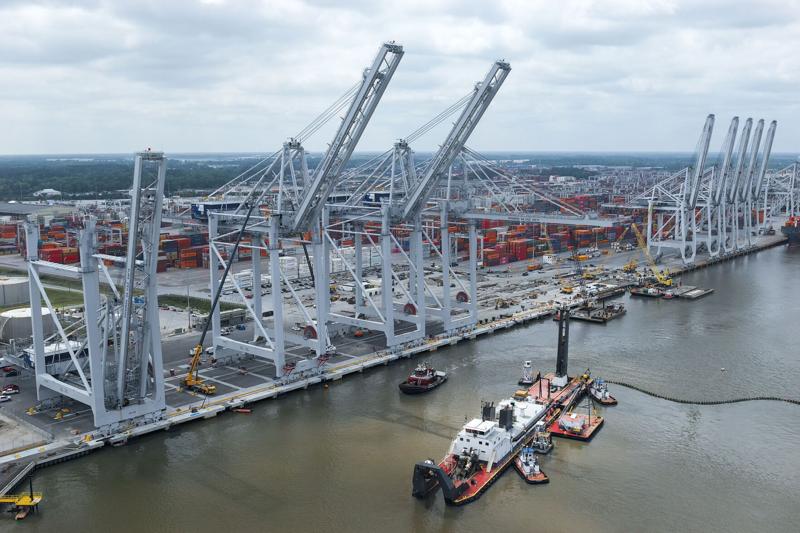Some longshoreman regularly earn more than the president of the United States along with most other U.S. workers.
Under the existing contract with the East Coast union, a top-scale longshoreman could earn up to $39 an hour, which translates to about $81,000 a year. However, many workers take overtime and extra shifts that have higher rates.
Some 50,000 International Longshoremen’s Association members went on strike Tuesday against the East and Gulf Coast ports, hampering the flow of goods in what some predict could be the most disruptive strike in decades.
Dockworkers often earn more than $100,000 a year because of work rules and overtime requirements.
More than half of 3,726 dockworkers at the Port of New York and New Jersey earned more than $150,000 in the fiscal year that ended in 2020, according to the port’s regulator, the Waterfront Commission of New York Harbor. About one in five dockworkers at the port earned more than $250,000 that year.
Eighteen dockworkers brought in more than $450,000 that year – more than the annual salary as the U.S. President ($400,000) and more than most U.S. workers. The real median household income for all Americans was $74,580 in 2022, according to the U.S. Census Bureau.
Some dockworkers get paid even if they don’t work.
“Every terminal within the Port still has special compensation packages given to certain ILA longshore workers, the majority of whom are white males connected to organized crime figures or union leadership,” according to the Commission’s 2019-2020 annual report. “Based on the industry’s reported figures, the Commission has again identified over 590 individuals who collectively received over $147.6 million dollars last year in outsized salaries, or for hours they never worked.”
The report noted the special packages were not memorialized in the applicable collective bargaining agreements. Rather than eliminate or cap them, the NYSA and ILA negotiated a 2013 Memorandum of Settlement of Local Conditions in the Port of New York-New Jersey. That guarantees special packages to certain people. Those individuals are paid for hours not worked or hours worked by others, as long as they are at the Port for 40 hours each week, according to the Commission’s report.
Such conditions have endured for decades, according to the Commission’s report.
“The hearings revealed that the hiring, training and promotion practices of the industry led to low-show jobs, favoritism and nepotism, the abusive and illogical interpretation of collective bargaining agreements, and the impact of those practices both on the competitiveness of the Port and on the morale and career prospects of decent, hard-working Port employees,” according to the report. “Connected individuals are awarded high paying, low-show or no-work special compensation packages, in some cases earning salaries in excess of $500,000. Such positions were overwhelmingly given to white males connected to organized crime figures or union leadership.”
The ongoing strike, which extends from Maine to Texas, could affect everything from bananas to European beer and automobiles.
The International Longshoremen’s Association blamed the United States Maritime Alliance for refusing a contract offer.
It’s the first strike at these ports since 1977. The strike will affect 36 U.S. ports handling about half of U.S. ocean imports. Included are Boston, New York, New Jersey and Philadelphia.
Negotiations have been tense since June. The disagreement is between the International Longshore Association and Warehouse Union, which represents port workers across the country, and the U.S. Maritime Alliance, which represents terminal operators and ocean carriers.
Wages of East and Gulf coast workers are a base wage of $39 an hour after six years. The union is asking for a 77% pay increase over six years. It is also asking for more restrictions and bans on the automation of cranes, gates, and container movements used to load or unload cargo.







